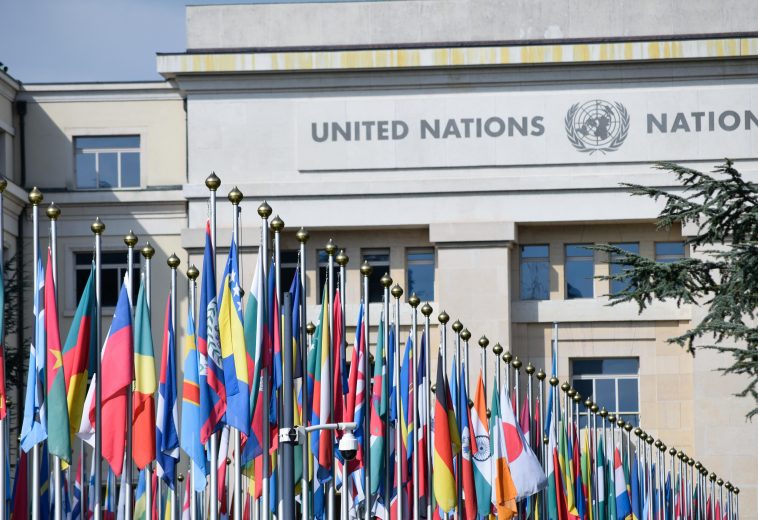Femicide, the violent killing of women due to their gender, is a global crisis that transcends borders, cultures, and socioeconomic statuses. While this epidemic is not unique to Africa, the continent’s proactive measures offer hope and provide a blueprint for change that other regions could emulate.
“The epidemic of violence against women and girls shames humanity,” said Secretary-General António Guterres in his message for the International Day for the Elimination of Violence against Women. “The world must heed this call. We need urgent action for justice, and accountability, and support for advocacy.”
READ ALSO: International Day to End Violence Against Women – A Global Call for Change
Globally, an estimated 45,000 women were killed by intimate partners or family members in 2021, equating to one woman every 11 minutes. Even Europe, often considered a bastion of progress, is not exempt. Spain reported over 36,000 calls to gender violence helplines in 2023, underlining the ubiquity of the problem. In Italy, calls to similar helplines have surged in recent years, reflecting increasing public awareness but also persistent violence. Asia and the Americas also grapple with significant femicide rates, underscoring the universal nature of this crisis.
A joint report by UN Women and the UN Office on Drugs and Crime (UNODC) revealed that in 2023, 140 women and girls died every day at the hands of their partner or a close relative—equivalent to one woman killed every 10 minutes. Alarmingly, only 37 countries reported data on intimate partner and family-related femicides in 2023, a sharp decline from 75 in 2020. This troubling data gap hampers global efforts to monitor trends and enforce accountability.
In Africa alone, 21,700 women were killed in 2023 in intimate partner and family-related femicides, according to a United Nations report. Yet, as UN Women Executive Director Sima Bahous stated, “Violence against women and girls is not inevitable; it is preventable.” She emphasised the importance of “robust legislation, improved data collection, greater government accountability, a zero-tolerance culture, and increased funding for women’s rights organisations and institutional bodies.”
Africa’s Bold Steps to Tackle Femicide
Africa’s narrative around femicide is evolving. Countries like South Africa, long plagued by gender-based violence, have made significant policy strides. The 2022 National Strategic Plan on Gender-Based Violence and Femicide (GBVF) has allocated substantial resources to support survivors, improve law enforcement responses, and fund awareness campaigns.
Rwanda, renowned for its post-genocide recovery, has embedded gender equity into its national ethos. Its One-Stop Centres provide survivors with comprehensive care—including medical, legal, and psychological services—all under one roof, streamlining access and preserving dignity.
In Kenya, the “HeForShe” campaign actively involves men as allies in combating gender violence. Uganda, meanwhile, has revitalised traditional justice mechanisms such as the “Mato Oput” reconciliation practice, integrating them into modern frameworks to promote community-driven accountability. These strategies offer a template for global adoption, demonstrating that culturally nuanced approaches can yield meaningful change.
These initiatives challenge the stereotype that femicide is primarily an African issue. The continent’s emphasis on survivor support, community engagement, and legal reform has not only spurred progress but also set a powerful example for regions like Europe and the Americas, where gender-based violence remains endemic.
Traditional Approaches and Modern Solutions to End Femicide
Across Africa, traditional systems of community justice—such as Uganda’s “Mato Oput”—are being adapted to complement formal justice mechanisms. These culturally sensitive methods have proven effective in engaging communities directly and fostering accountability and reconciliation.
Africa’s progress is akin to a phoenix rising from the ashes. Once burdened by staggering femicide rates, many nations are now transforming societal attitudes, empowering women, and fostering grassroots movements to dismantle harmful gender norms. Although this transformation is far from complete, it signals hope and resilience.
A Call to Global Unity in Combating Femicide
Africa’s strategies can serve as a global model. For instance, integrating survivor-centric approaches and funding community-driven initiatives could inspire similar transformations in Europe and the Americas. By investing in education, enforcing stringent laws, and amplifying survivor voices, regions worldwide can learn from Africa’s progress. While Africa’s fight against femicide is far from over, the continent’s innovative approaches and commitment to change shine brightly. Femicide is not just an African problem; it is a global crisis demanding collective action. The world can uncover pathways to healing, justice, and meaningful change by highlighting Africa’s successes.




